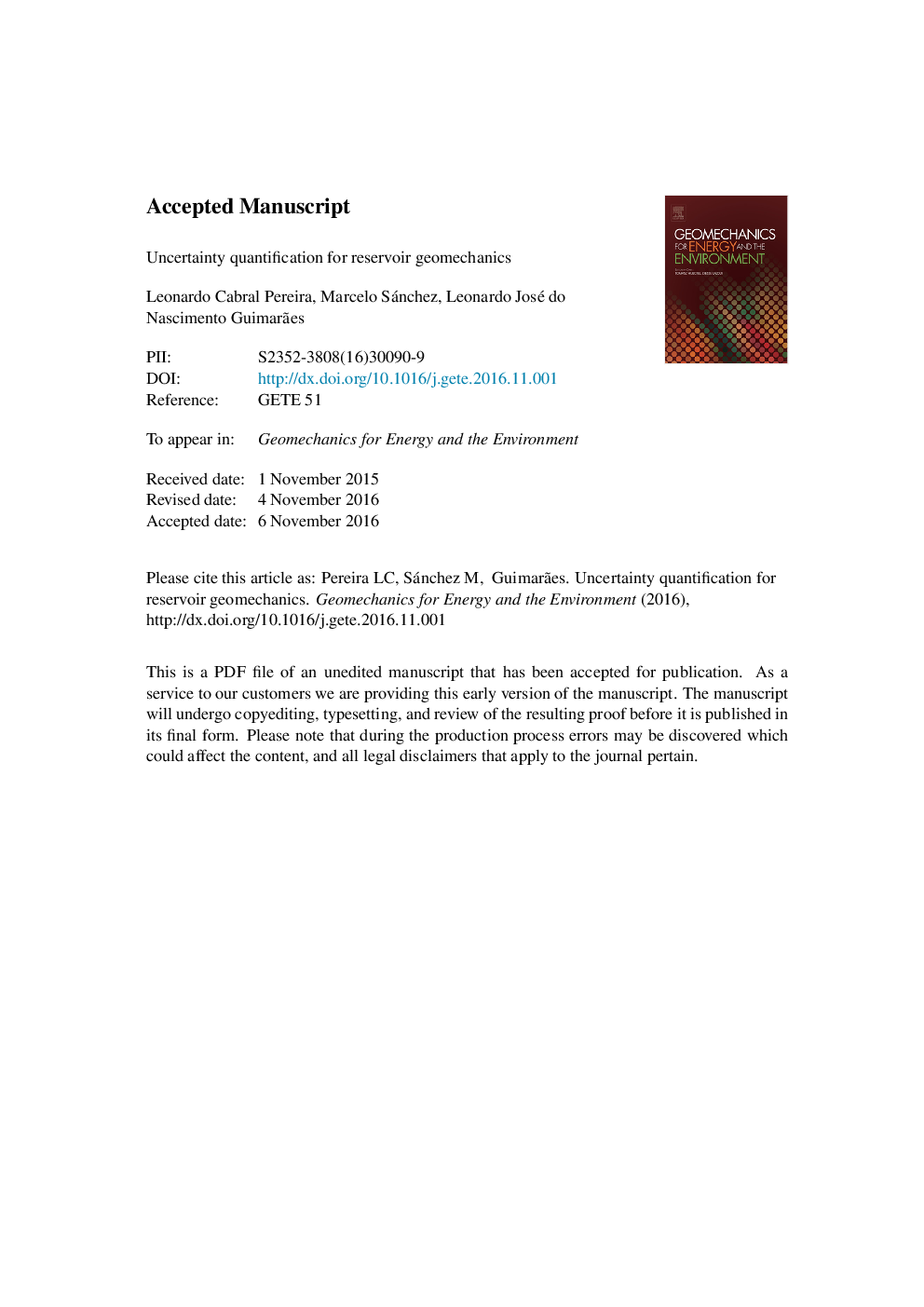| Article ID | Journal | Published Year | Pages | File Type |
|---|---|---|---|---|
| 4921548 | Geomechanics for Energy and the Environment | 2016 | 38 Pages |
Abstract
Geomechanics plays a critical role in oil and gas reservoir problems. One of the challenges related to reservoir geomechanics is that information about sediments and rock properties is generally very limited. Furthermore, these geomaterials are typically highly heterogeneous. Therefore, a formal framework for dealing with the uncertainties associated with this type of problem is much required. Uncertainty quantification can be performed either via probabilistic or non-probabilistic methods. The latter approach is generally better suited for handling epistemic (or reducible) uncertainties, which are the more usual in geomechanical reservoir problems. A non-probabilistic framework based on the evidence theory was adopted in this work for dealing with the uncertainties related to the material properties. The contribution focuses on how additional information can be incorporated in a consist fashion in the analysis to reduce the uncertainties. Two analytic solutions associated with typical reservoir geomechanics problems, such as the estimation of the fracture pressure and subsidence, were adopted as the case studies. These application cases shown that the evidence theory was able to reduce the uncertainties associated with these problems when additional information about material properties became available. Another advantage of the adopted framework is that experts' opinion related (for example) to the reliability of the experimental data gathered from different sources could be explicitly incorporated in the study. It is shown that this type of approach can be instrumental in assisting the decision-making process.
Related Topics
Physical Sciences and Engineering
Earth and Planetary Sciences
Geotechnical Engineering and Engineering Geology
Authors
Leonardo Cabral Pereira, Marcelo Sánchez, Leonardo José do Nascimento Guimarães,
